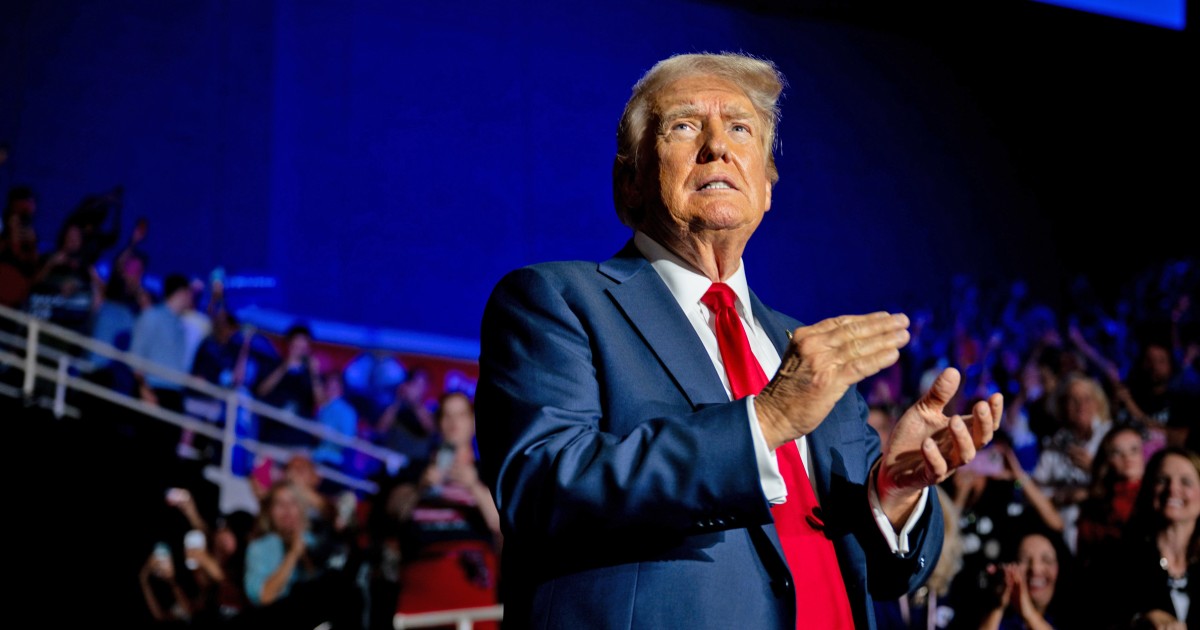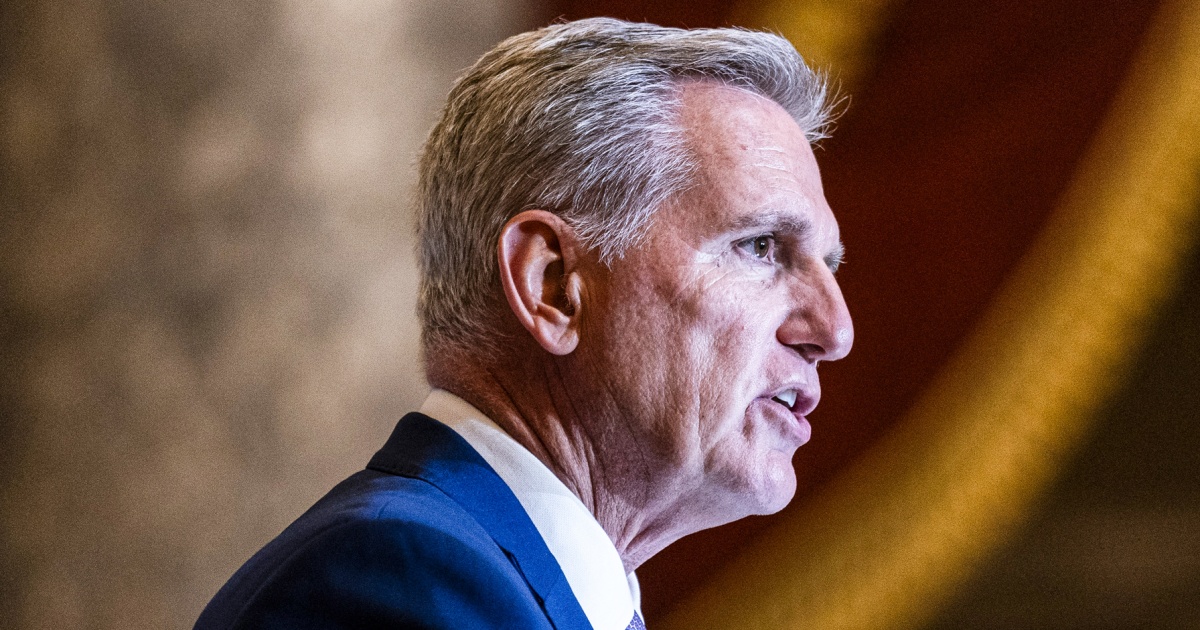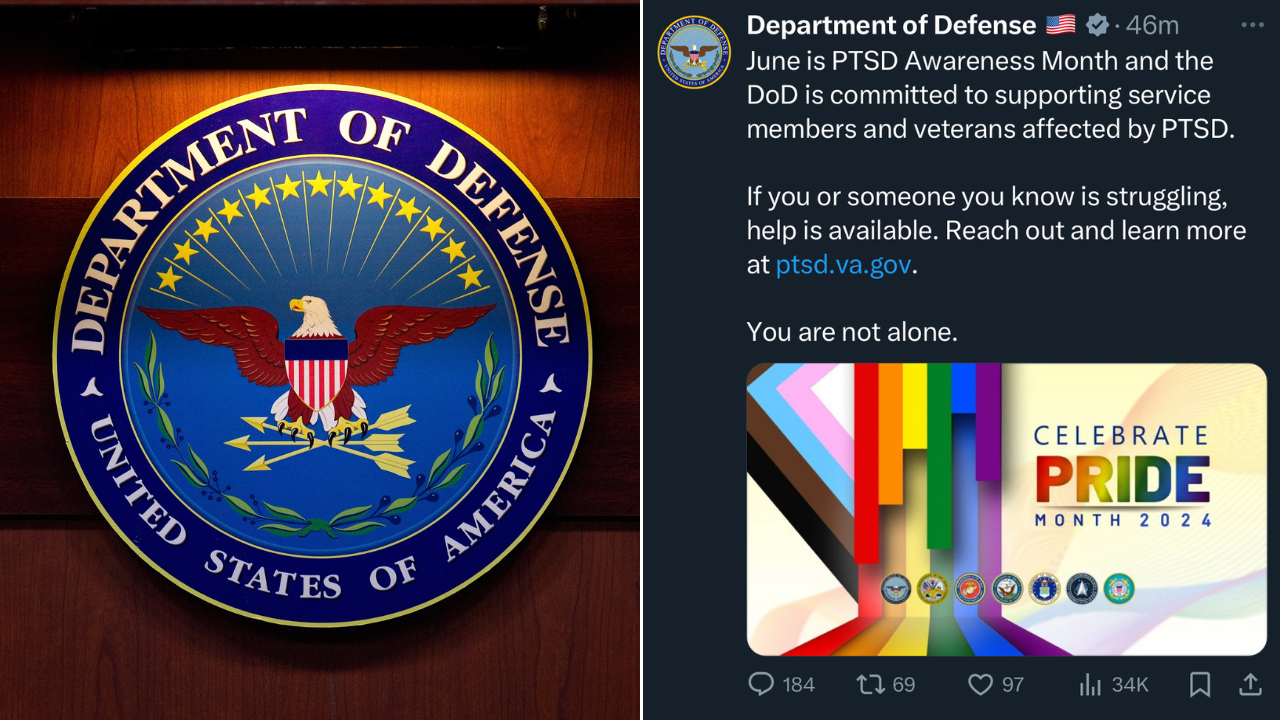WASHINGTON — When Donald Trump took office in 2017, he immediately issued a provocative executive order banning travel from Muslim-majority countries that led to chaos, confusion and a flurry of lawsuits that ended up at the Supreme Court.
If he wins the election in November, he has pledged to follow a similar course on another contentious policy proposal: ending birthright citizenship.
In May of last year, Trump released a campaign video renewing his call to end the long-standing constitutional right, saying he would sign an executive order on day one of his presidency that would ensure that children born to parents who do not have legal status in the U.S. will not be considered U.S. citizens.
“The United States is among the only countries in the world that says even if neither parent is a citizen or even lawfully in the country, their future children are automatic citizens the moment the parents trespass onto our soil,” Trump said in the video.
Birthright citizenship has long been understood to be required under the Constitution’s 14th Amendment, which states: “All persons born or naturalized in the United States, and subject to the jurisdiction thereof, are citizens of the United States.” The language was included in the constitutional amendment enacted after the Civil War to ensure that Black former slaves and their children were recognized as citizens.
The phrase has been generally understood by legal scholars of all ideological stripes to be self-explanatory, but that has not stopped some anti-immigration advocates from pressing an alternative interpretation.
“Litigation is a certainty,” said Omar Jadwat, a lawyer at the American Civil Liberties Union who was also involved in the travel ban challenge.
“It’s directly in the teeth of the 14th Amendment,” he added. “It would essentially be an attempt to tear down one of the core constitutional protections that has been a key part of our country.”
The Supreme Court ultimately upheld a watered-down version of Trump’s travel ban, deferring to the president’s authority on national security issues, but even supporters of birthright citizenship accept Trump’s plan would face a potentially insurmountable uphill battle.
“It’s something that the Supreme Court may well decide against the president if he were to take this step,” said Mark Krikorian, executive director of the Center for Immigration Studies, who supports the idea.
If Trump loses that case, then the next step is clear, he added: There would need to be an effort to start the difficult process of amending the Constitution.
A Trump campaign spokesman declined to comment on the plan, pointing to the former president’s original announcement.
Under Trump’s proposal, at least one parent would need to be a citizen or legal resident for a child to receive birthright citizenship. He indicated in his video that the policy would not apply retroactively.
The order, Trump said, would also address so-called “birth tourism,” a situation in which Republicans claim people visit the U.S. toward the end of a pregnancy in order to ensure the child is born a U.S. citizen.
It is unclear exactly how many children a year are born in the U.S. to parents who are both undocumented or how many of them could be described as “birth tourists” under Trump’s formulation.
Krikorian’s group has previously said that there could be up to 400,000 children born a year to undocumented parents and thousands of children born as a result of birth tourism every year.
The American Immigration Council, an immigrant rights group, said it does not have exact numbers but noted that there are currently an estimated 3.7 million U.S.-born children who have at least one parent who is undocumented, a number derived from U.S. census data.
A spokesperson for U.S. Citizenship and Immigration Services, the federal agency that handles citizenship issues, declined to comment.
Trump had pledged to end birthright citizenship when first running for president in 2015 and he raised it again in 2018. But he never issued an executive order.
At the time, House Speaker Paul Ryan, a fellow Republican, dismissed the idea, saying: “You can’t do something like this via executive order.”
Despite Trump’s pledge, the plan to end birthright citizenship is not specifically mentioned in the 2024 Republican platform document, which includes a chapter titled “Seal the Border and Stop the Migrant Invasion.”
The platform does include language pledging to “prioritize merit-based immigration” and end chain migration, a term used to refer to people who have U.S. citizenship and then use their status to help other family members enter the country.
Ken Cuccinelli, who held a senior Department of Homeland Security position in the first Trump administration, said the proposal is “appropriate and manageable from a policy perspective” but did not respond to further questions on how it could be lawfully implemented.
Cuccinelli wrote the chapter on immigration-related issues that was included in Project 2025, a proposed road map for a second Trump administration issued by the conservative Heritage Foundation. His section did not mention birthright citizenship.
‘Historical myth’
“As has been laid out by many scholars, this current policy is based on a historical myth and a willful misinterpretation of the law by the open borders advocate,” Trump said of birthright citizenship in his announcement video.
Few people agree with that assessment.
The legal argument, fleshed out by anti-immigration advocates, focuses on the language in the 14th Amendment saying that birthright citizenship is awarded to those “subject to the jurisdiction” of the United States.
Opponents of birthright citizenship say that language means citizenship is denied to anyone whose parents are not legally in the country.
“Illegal aliens can hardly be said to be under the protection of the United States,” said Christopher Hajec, a lawyer at the Immigration Reform Law Institute, another anti-immigration group.
But most legal experts say the jurisdiction language only refers to people not bound by U.S. law, most notably foreign diplomats.
Even James Ho, a conservative lawyer whom Trump appointed to the New Orleans-based 5th U.S. Circuit Court of Appeals where he has built a reputation as a judicial firebrand, backs that view.
He wrote in a 2009 article that the 14th Amendment citizenship language applies to “most U.S.-born children of aliens, including illegal aliens.”
Being within the jurisdiction of the U.S. merely means people who are required to obey U.S. laws, Ho said. “And obedience, of course, does not turn on immigration status,” he added.
The Supreme Court has never directly ruled on the issue, but the one case that is frequently mentioned in any discussion of the issue suggested that it was assumed people born in the U.S. have citizenship, whatever the status of their parents.
In that 1898 case, called United States v. Wong Kim Ark, the court ruled that a man born in San Francisco to parents who were both from China was a U.S. citizen.
Birthright citizenship critics argue that the ruling did not address whether the children of people who entered the country illegally are U.S. citizens, as the parents in that case had been lawfully admitted.
In fact, they suggest the ruling assumes that the children of people who enter the country illegally do not have citizenship, although they concede that the argument can be difficult to follow.
“You really have to tease it out,” Hajec said. “It’s a pretty complicated argument.”
If Trump were to follow through on his plan to issue an executive order on day one, the impact could be felt immediately.
The Trump campaign has said the president would order the Social Security Administration to refuse to issue Social Security numbers to newborn children without proof of the parents’ immigration status. He would issue a similar order to the State Department regarding passports.
Krikorian, who said he has not discussed the policy with the Trump campaign, favors that approach as it would not require any action from Congress and would immediately prompt a lawsuit that would get the legal issue before the Supreme Court in short order.
In the unlikely event that Trump’s plan were to go fully into effect, it could be tricky to implement because federal agencies do not necessarily have immigration status at their fingertips and would need to access information not just on the newly born child but also data on both parents. Sometimes relevant information could be hard to determine, such as if the immigration status of an absent parent is not known to the other.
A Social Security Administration spokeswoman noted that the agency does not hold data on immigration status, which it has to verify with the Department of Homeland Security before issuing immigrants a Social Security number.
Currently, a U.S. birth certificate is all that is needed to obtain a Social Security number or passport.
Emma Winger, a lawyer at the American Immigration Council, said that Trump’s proposal would affect any child born in the United States, as every parent would now need to take an additional bureaucratic step to ensure that their baby is registered as a citizen.
“Everybody relies on the fact that if they are born here they just need to show proof of birth,” she said. “It would be a radical shift.”



